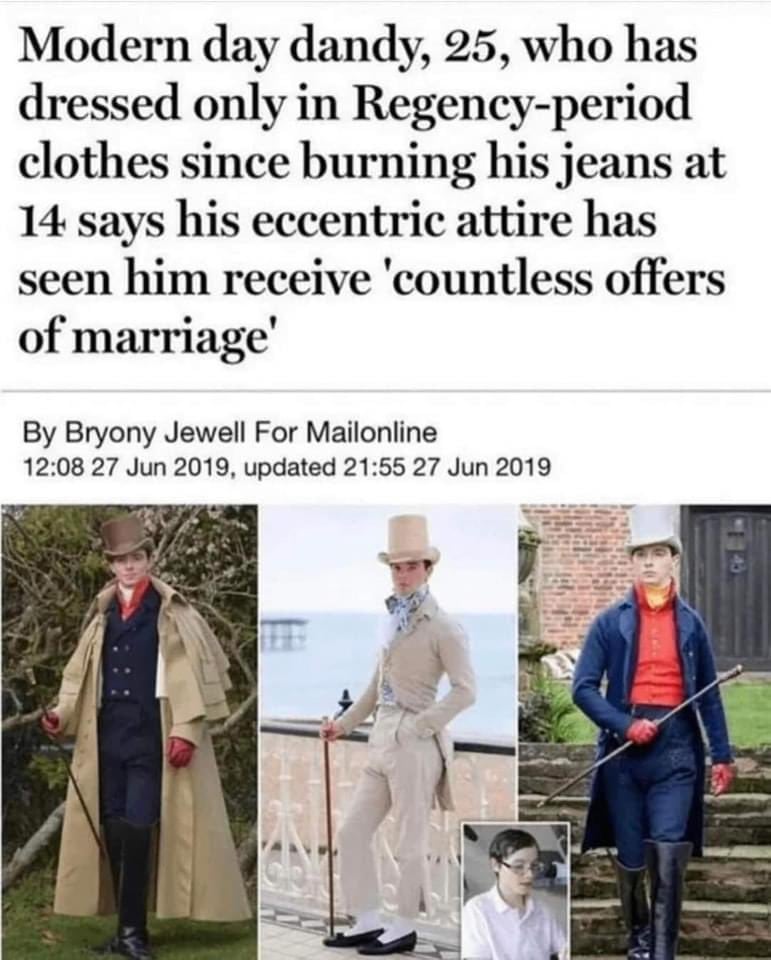this post was submitted on 24 Apr 2024
736 points (97.3% liked)
Funny
6758 readers
268 users here now
General rules:
- Be kind.
- All posts must make an attempt to be funny.
- Obey the general sh.itjust.works instance rules.
- No politics or political figures. There are plenty of other politics communities to choose from.
- Don't post anything grotesque or potentially illegal. Examples include pornography, gore, animal cruelty, inappropriate jokes involving kids, etc.
Exceptions may be made at the discretion of the mods.
founded 1 year ago
MODERATORS
you are viewing a single comment's thread
view the rest of the comments
view the rest of the comments

I mean, by people I think you mean people with money. People dress appropriate to their station. People then doing manual labor couldn’t afford clothes like the dude in the post and wouldn’t have wasted money on clothes that weren’t durable and easily cleaned.
T-shirt and jeans became the standard due to their cheap cost to manufacture, durability, and standardized sizes and popularity in the mining, farming, and railroad industry, and again with WWII.
Not a lot of jobs these days that allow for fancy dress and not many people can afford their own tailor. Not to mention temperatures were much cooler back then allowing all those extra layers, where as now you’d melt in some parts.
Of course I don't mean the lower classes would wear a suit like that.
They would wear different clothes. But trousers, waistcoat, shirt are standard British clothing for all classes.
Here's some miners
The only people that actual seem to dress British are people that work in finance and schoolchildren. Thank God for uniforms.
Fair enough
I can see why we abandoned that way of dressing in Australia. Our weather is too hot aside from inland in winter. We imported that style, but so often men would have their shirts, ties, vests, jackets off wearing only trousers, shoes, and a hat.
Though it's still the uniform in private schools, shorts for the boys and trousers for the young men